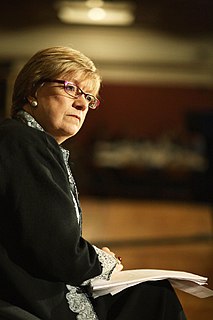A Quote by Kenneth C. Davis
It is impossible to understand history, international politics, the world economy, religions, philosophy, or ‘patterns of culture’ without taking geography into account.
Related Quotes
There are only patterns, patterns on top of patterns, patterns that affect other patterns. Patterns hidden by patterns. Patterns within patterns. If you watch close, history does nothing but repeat itself. What we call chaos is just patterns we haven't recognized. What we call random is just patterns we can't decipher. what we can't understand we call nonsense. What we can't read we call gibberish. There is no free will. There are no variables.
Much of the rest of the world has already learned some English. They pretty much understand the American way of doing things, because our culture has been ubiquitous and has been the 500-pound gorilla in the global economy. But the world is far more interrelated than ever before, and no one culture can thrive without the knowledge of how to function in other cultures.
You can write about a country without taking a stand, but you cannot write about a country without noting that there's history, and that there's politics going on. To me, that's the same if you write about America. You don't have to write about politics, but the politics have to be present in the characters.








































